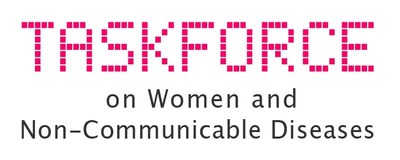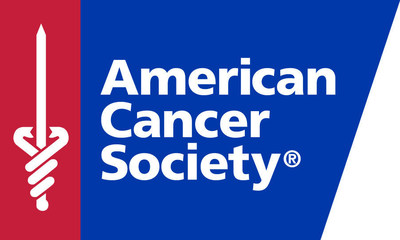Press Releases
NEW YORK, March 16, 2017 /PRNewswire-USNewswire/ -- The health, economic and social impact of NCDs on women throughout their lives are the focus of high-profile "Women and NCDs: Debunking Myths and Taking Action" side event today from 1pm-3pm ET at the United Nations Headquarters in New York. Organized by the Taskforce on Women & NCDs and the NCD Alliance in collaboration with UN Women, International Alliance of Women, and Conference of NGOs, the event marks the UN's 61st session of the Commission on the Status of Women and highlights the unique burden of NCDs, including caregiving, on women. The event is supported by Cigna.

Women's health advocates, policymakers, heads of delegations, female world leaders, and women from the global business community are expected to attend.
The session will kick off with opening remarks from Dr Gustavo Gonzalez-Canali from UN Women, followed by WHO's Dr Nata Menabde who will debunk the common myths around NCDs. That will be followed by an overview on the lifecourse approach to women's health by Dr. Heather White, PSI, co-chair Taskforce on Women & NCDs. A panel discussion, moderated by Dr Nalini Saligram, CEO and founder of Arogya World and co-chair of the Task Force on Women and NCDs, will focus on "Social Mobilization and Taking Action." Panelists include Soon-Young Yoon from International Alliance of Women, Katie Dain from NCD Alliance and Dr. Christina Stasiuk from Cigna. The event will conclude with a call-to-action from Ambassador Sally Cowal, American Cancer Society, and one of the founders of the Taskforce on Women & NCDs.
"The Taskforce on Women and NCDs believes women everywhere have a right to health throughout their lives, from early childhood and adolescence through their reproductive years and into old age. Women must step up and demand a life course approach to their health," said Dr. Heather White.
"When it comes to women and NCDs, there is much work to be done. NCDs impact women as patients, mothers and caregivers. Arogya World's global study of 10,000 women estimated that 50 percent of women provide care for someone with an NCD, and 20 percent had to quit their jobs to do so," pointed out Dr. Saligram. "The voices of all women and girls must be heard," she said, "and their contributions, paid or unpaid, must count."
In a global Call to Action (see below) Ambassador Sally Cowal said: "Women are a powerful solution to the NCD crisis. If they are educated and empowered to lead their families towards healthy living, we can win in this fight against NCDs. I would like very much to see women at the center of a global NCD prevention movement, and I invite all leaders coming to the CSW meetings this week, to collaborate with the Taskforce on this important work."
The Taskforce on Women and NCDs, in collaboration with the NCD Alliance, has developed a tool – the "Women and NCD" pocket cards (http://www.womenandncds.org/Resources_-_Internal.html) to help illustrate and communicate the impact of NCDs and the actions women can take. These and other resources (http://www.webcandyinteractive.com/Womenandncds/Briefs/10,000womenInfographic1.pdf) will be distributed at the event today.
A global Call to Action issued today by the Taskforce on Women and NCDs, to world leaders and policymakers, demands:
- Recognition that the health of women and girls is a social justice issue
- NCDs impact women uniquely as patients, mothers and caregivers.
- The staggering economic impact of NCDs can push women and their families deeper into the abyss of poverty.
- A special economic burden is placed on families when women die or are disabled by NCDs.
- The burden of caregiving, often caused by NCDs, is borne mostly by women. The voices of all women and girls must be heard and their contributions, whether they work in or outside the home, should count towards their country's GDP.
- A lifecourse approach to women's health in the Sustainable Development Goals (SDG) era
- Women the world over have a right to health, all through their lives.
- Women must demand this lifecourse approach to health, recognizing that
- A woman's life is worth more than her reproductive years
- More in-country gender-specific prevention programs
- So girls and women of all ages can readily access preventive health check-ups and NCD testing for hypertension, cholesterol, diabetes, gestational diabetes, cervical cancer, breast cancer, and other medical conditions
- Increased emphasis on adolescent girls for NCD prevention
- Empowering Women to Lead Their Families towards Healthy Living- A New Strategy to Meet SDGs –
- Girls and women of all ages are leaders and stewards of their own health and that of their families. Empowering women and girls with education and tools can help them steer their families towards healthy living. Indeed, women are powerful solutions to the NCD crisis.
- Because NCDs have deep developmental impact, preventing NCDs for women and girls can free them up to earn a living, and in turn lift up their families and their communities.
- Active collaboration among girl's and women's rights groups, women's health groups, NCD /global health groups, and businesses and government, to advance the health of women everywhere.
About the organizations: The Taskforce on Women and Non-Communicable Diseases (NCDs) brings together fourteen global health organizations from the women's health and NCD communities to respond to the unique and growing burden of non-communicable diseases on women in low- and middle-income countries by mobilizing leadership, expanding technical expertise and disseminating evidence to inform policymaking, planning and services. www.womenandncds.org.
The American Cancer Society is a global grassroots force of 2 million volunteers saving lives in every community. As the largest voluntary health organization, the Society's efforts have contributed to a 23 percent decline in cancer death rates in the U.S. since 1991, and a 50 percent drop in smoking rates. We're finding cures as the nation's largest private, not-for-profit investor in cancer research, ensuring people facing cancer have the help they need and continuing the fight for access to quality health care, lifesaving screenings and more. For more information, to get help, or to join the fight, call us anytime, day or night, at (800) 227-2345 or visit cancer.org.

SOURCE American Cancer Society

